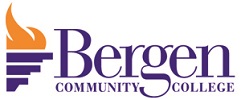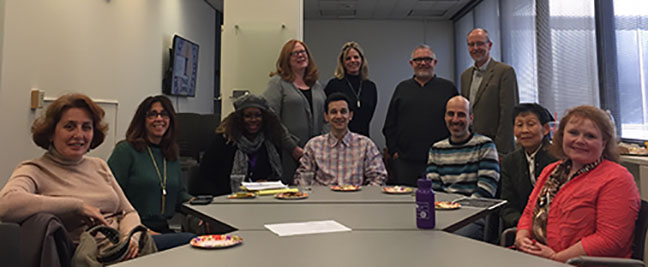What is a Learning Community?
A learning community is a pairing of two or more courses, generally from different disciplines, that are linked together thematically and sequentially to provide greater integration of curriculum, more opportunities for active learning, and more interaction between students and faculty. Two instructors who integrate their course content and collaborate closely throughout the semester to address the educational goals in both courses teach in the learning community.
The students in a learning community need to take both courses that are linked together.
Benefits for students studying in LCs:
Learning communities allow students smaller class size, more personal attention, and more collaboration with peers and instructors. Students in learning communities develop stronger friendships with their classmates and instructors. Learning Communities allow students to develop the collaborative, critical thinking, and social skills they will need to achieve their academic, career, and personal goals. Students who took a Learning Community pairing tend to be more confident of their abilities and more motivated to continue their studies. They have slightly higher pass rates in the paired course and in other college level courses.
Benefits of teaching in LCs:
Faculty teaching in LCs have benefitted from an enriching intellectual experience, deeper connection between the academic disciplines, more opportunities for interaction with their students, smaller class size, better scheduling, and financial compensation.
Bergen Community College offers a variety of learning communities for different student populations.
Gen Ed LCs:
Students who are entering mainstream college classes can take courses that fulfill general education requirements for their degree. General education courses are often the pre-requisite courses at 100- and 200- levels that count towards most two-year degrees at Bergen and towards transfer to most four-year schools.
Below are some examples of gen. ed. course pairings: Introduction to General Psychology 101, Composition 101 and 201, American History since Reconstruction 112, Literature 201, Introduction to Sociology 101, Introduction to Theater 101, Communication 101, Cross-Cultural Healthcare 100, Criminal Justice 101, and Western Civilization II 102.
Honors LCs:
Students in the Honors program can take Honors LC courses. Writing 101 Honors section has been successfully paired with Communication 102 Honors section, in which students learn to communicate effectively in both verbal and written format. We plan to offer more Honors sections in LC in the future
Basic Skills LCs:
Many students must complete English Basic Skills coursework to prepare for the demands of college reading and writing and to strengthen the critical thinking and study skills necessary for life-long learning. Students who have been placed into EBS 011, 012, or 021, can join a Learning Community that allows you to accomplish these goals while earning college credit. Developmental English students thrive in Learning Communities because they are able to apply the skills built in EBS to the college course content. They receive academic and personal support from both instructors and from their classmates.
ESL LCs:
All non-native speakers of English who are currently enrolled in the advanced level of the ESL in the American Language Program (ALP) can join one of ESL Learning Communities.
All instructors in the ESL Learning Communities are aware of the unique needs and challenges second language learners face in college level classes. Instructors are collaborating throughout the semester to address the educational goals of language minority students. In-class tutoring is available to all students in ESL Learning Communities.

